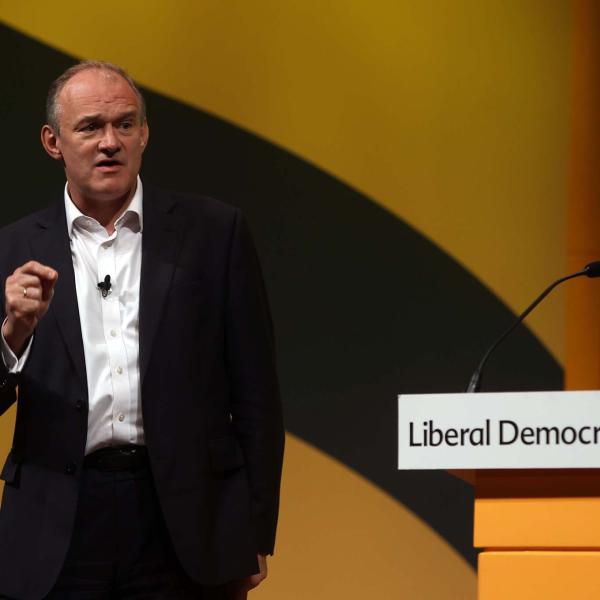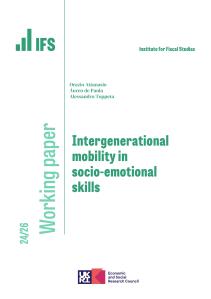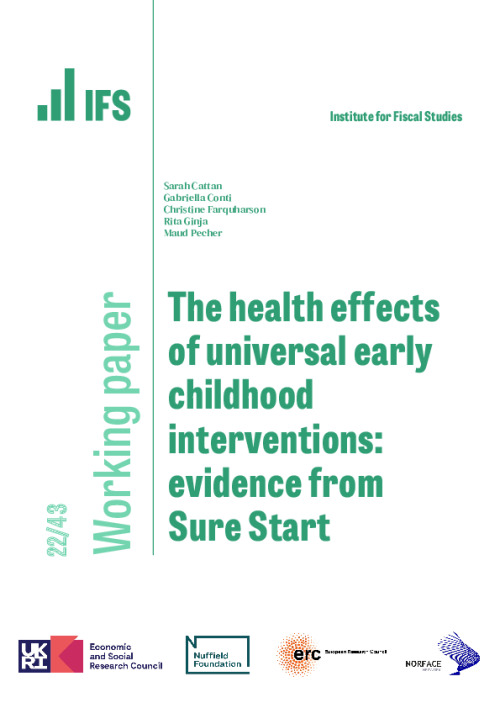Early Childhood Interventions (ECI) offering disadvantaged children preschool and family support services in the US show long-lasting health impacts. Can these benefits hold when these programs are offered to all children in contexts with universal healthcare? We evaluate the short- and medium-term health impacts of Sure Start, a universal integrated ECI in England, exploiting its 11-year rollout and administrative hospitalizations data. One additional Sure Start centre per thousand age-eligible children increases hospitalizations by 10% at age 1, but reduces them by 8-9% across ages 11-15. Impacts are concentrated in disadvantaged areas and likely driven by both health and non-health services.
Authors


Research Fellow University College London
Gabriella is a Research Fellow of the IFS and a Professor of Economics in the Department of Economics and in the Department of Social Science at UCL.

Associate Director
Christine's research examines inequalities in children's education and health, especially in the early education and childcare sector.

Research Associate University of Bergen
Rita is an IFS Research Associate, an Associate Professor at the University of Bergen and a Research Associate at the Uppsala University.

Maud Pecher
Working Paper details
- DOI
- 10.1920/wp.ifs.2022.4322
- Publisher
- Institute for Fiscal Studies
Suggested citation
Cattan, S et al. (2022). The health effects of universal early childhood interventions: evidence from Sure Start. 22/43. London: Institute for Fiscal Studies. Available at: https://ifs.org.uk/publications/health-effects-universal-early-childhood-interventions-evidence-sure-start (accessed: 30 June 2024).
More from IFS
Understand this issue

If you can’t see it, you can’t be it: role models influence female junior doctors’ choice of medical specialty
24 April 2024

What is the two-child limit in benefits?
27 June 2024

Liberal Democrat manifesto: a reaction
10 June 2024
Policy analysis

How do the last five years measure up on levelling up?
19 June 2024

Free breakfast clubs in schools: what Labour’s plans would mean for pupils and families
25 June 2024

How should we interpret parties’ public spending pledges this election?
23 June 2024
Academic research

The role of hospital networks in individual mortality
13 May 2024

Economics of Childhood Nutrition Workshop

Intergenerational mobility in socio-emotional skills
5 June 2024
